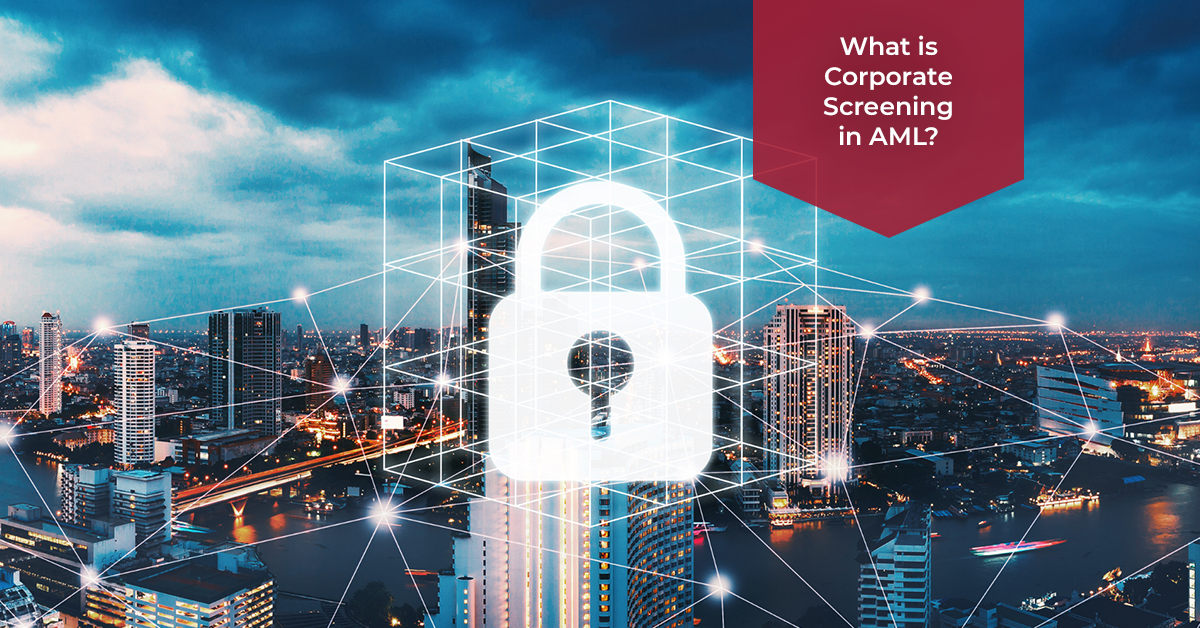
What is Corporate Screening in AML?
Corporate screening for anti-money laundering (AML) is a necessary process helping businesses to prevent financial frauds. Knowing and using corporate screening will assist companies stay free from being victims of fraud, money laundering, and other illegal conduct perhaps seriously jeopardizing their finances and reputation.
What Is Corporate Screening?
Corporate screening is the process of looking at businesses, firms, and important players to find possible hazards. This entails confirming the company’s, owners’, identities as well as their possible involvement in illegal activity. Essential for compliance with AML rules, the Know Your Business (KYB) procedure revolves mostly on corporate screening.
Corporate Screening Regulations In the World
Although rules on corporate screening vary depending on the jurisdiction, the objective is global: to stop financial crimes and money laundering. While the Anti-Money Laundering Directives (AMLD) of the EU apply tough standards throughout member states, the Patriot Act mandates strong KYB criteria in the United States. Other nations, including the UK, adhere to the Financial Conduct Authority’s (FCA) policies; in Asia, rules such as those of Singapore’s AML/CFT laws are rather important. All these rules stress the need of checking business identities and tracking transactions despite geographical variations.
Why Is Corporate Screening Important?
One cannot stress the value of corporate screening any more. Companies are increasingly vulnerable to several hazards like fraud, corruption, and money laundering as global corporate operations becoming more complicated. Should a corporation neglect to sufficiently check its suppliers, business partners, or clients, it may unintentionally support criminal activity, resulting in dire legal results.
How Does Corporate Screening Work?
Corporate screening calls for multiple phases to completely evaluate a business. Usually, the procedure comprises:
- Verification of Business Identity: Verifies the company’s legality by looking over its business license and registration records.
- Beneficial Ownership Check: Finds the beneficial owners so they are not using business entities to cover illicit activity.
- Sanctions and Watchlist Screening: Screens businesses against political exposed persons’ (PEP) databases and worldwide sanctions lists.
- Adverse Media Screening: Searches for bad news or media coverage of the company or its important personalities.
Best Practices for Corporate Screening
Following these standard procedures will help companies guarantee efficient corporate screening:
- Use Advanced Technology: Automate and improve the screening process using tools driven by artificial intelligence.
- Regularly Update Data: Track and update material constantly to match evolving laws and hazards.
- Comprehensive Screening: Add advantageous ownership and negative media screenings to go beyond simple checks.
- Tailored Screening Processes: Tailor your screening protocols to fit the particular hazards linked to particular sectors and areas.
Any company in the linked world of today must have corporate screening as a regular habit. Along with ensuring businesses follow AML rules, it protects them against the dangers of fraud and other financial crimes. Incorporating thorough corporate screening procedures and following best standards can help companies run with more confidence knowing they are shielded from unseen risks that might compromise their viability.
Corporate screening is not only a legal need but also a wise commercial option for companies trying to fortify their defenses against financial crimes.

